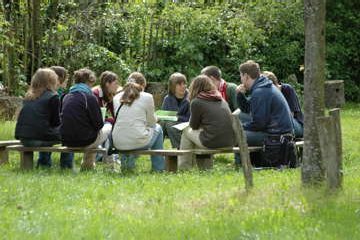The essence of sabbatical is rooted in the biblical practice of the Sabbath day described in the creation story. Jesus kept this practice when he took time in his ministry for renewal. He often went away to pray and reflect in silence and meditation “on mountain tops and by lakesides.” The daily practice of ministry may involve the pressure of many tasks compressed into too few hours, leaving little opportunity for reflective, prayerful time.
The United Church of Canada policy requires every community of faith to provide a paid sabbatical of at least three months to members of the order of ministry of The United Church of Canada who have completed at least five years of service in one call or appointment. The sabbatical is in addition to the minister’s vacation time and regular study leave for the year in which the sabbatical is taken.
Since Sophia has been with United Churches of Langley for nearly 6.5 years, the Board has approved the sabbatical timing of May-August 2023. Below and attached you will find more details about Sophia's sabbatical plan and activities, as well as you can hear and see more on Sunday, April 30, 2023, as we celebrate her sabbatical and bless her on her journey.
Click on the PDF Download below for a detailed timeline and program descriptions.
2023 Sabbatical Goals – Rev. Sophia Ducey
Based on my past 6 years (or 19 years) of ministry, I have had a deep longing to immerse myself in communities that have taken time to explore new ways of engaging spirituality - rooted in Christianity, but also beyond and before the life of Jesus’ time on Earth. With the decline of the mainline Christian churches, and in particular, younger people’s participation in the life of the “church,” I have spent the past years in conversation with younger people exploring what they are looking for in spiritual/faith community, and how might the “church” revive itself to engage in multi-generational community experiences of faith, practice, conversation, service and justice.
I have also been on a journey of wondering how might the participants/members of the church heal and move forward in reconciliation with the land and its native people. Beginning to explore my own ancestral journey of disenfranchisement and relocation to the Americas has helped me gain some perspective and more compassion for the indigenous people of Canada that I find I’ve connected with in my ministry with United Churches of Langley.
The Goals I have set for my Sabbatical include:
1. Explore new ways to engage younger people in multi-generational ministry
The 3 sites I have chosen for my sabbatical programming all have a focus on younger adult ministry, and alternative forms of ministry, spiritual practice and service. All 3 properties have made a shift to engaging deep and meaningful worship and spiritual practice, while also focusing on ministries of justice and care for the Earth and its people. I got a glimpse of this in my one day at Iona in 2019, and have continued to engage in learning about Iona, Findhorn and Taize and the work they are doing to transform ministry in the 21st Century.
2. Explore updated versions of Christianity
As we have all noticed, mainline church structures and theology aren’t attracting new people as fast as they are losing them. Previous beliefs about who and what is God, human, nature and the inter-relatedness of all life has shifted tremendously in the new millennium and before. We have heard from UCC church leaders that there are multiple theological streams in our churches, and we have witnessed this variety in our Skeptics, SHIFT and Contemplative worship gatherings. The two Scottish facilities I have selected for my sabbatical learning environments have updated the form of Christianity taught and practiced in their communities. I look forward to learning more about this and finding ways of bridging their insights to enhance the spiritual lives of those connected to United Churches of Langley.
3. Rest deeply, play and restore:
After 6 years of intense ministry, 4 years of extreme neurological vertigo, 3 years of a pandemic, and 2 years of engaging in support of Indigenous people and the church’s journey of reconciliation… all of my doctors are saying my central nervous system needs a rest. The long-term effects of the PPPD type of vertigo I have, as well as CSS (central sensitivity syndrome) have caused my system to remain in “overload” mode. I need time to empty my bucket, and rest and play in nature to rejuvenate my body, mind and spirit.
4. Re-indigenize myself:
I hosted a multi-generational book study on Braiding Sweetgrass during the pandemic. We explored the importance of place, home, and family. As I journey with many indigenous people who are sorting through their trauma from the church and wanting to find ways to feel “home” in/around the church, and also learn and embody their indigenous roots, I opened up a desire within me to explore the journey of my ancestors who were killed or sent from their lands in the Highlands. After they left the Urquhart lands on Loch Ness, they first went further north in the Highlands to Black Isle and other areas on the northeast coast, and then were stripped of their culture during the Highland Clearing. They fled to the Outer Hebrides and then in Nova Scotia, far from their native land and people. This is just a simple way of understanding a bit of the inner and outer journey of the Indigenous people of our community. I believe this will help me guide our congregation in deeper levels of care – for our land and its native people.
5. Re-establishing Pastoral Relations: (plans after sabbatical)
Upon my return, I hope to offer Playshops on:
- New forms of ministry and worship we can offer through the church
- Community of Practices incorporating updated Christian theology and broadened spirituality
- Offering practice groups myself as well as training others to lead
- How to engage younger people in service and spiritual practice through the church
Click on the document below for a detailed timeline and program descriptions.





.jpg)










.jpg)





